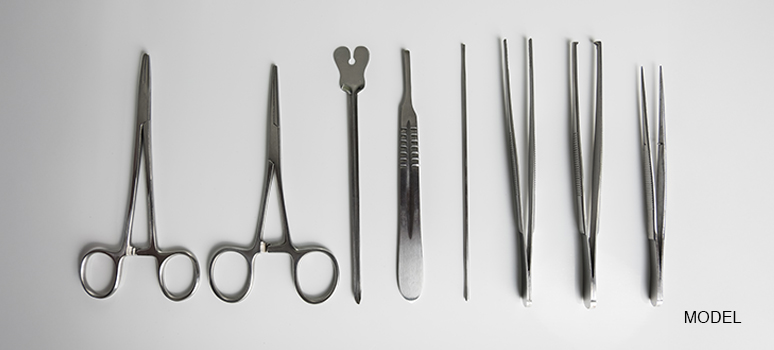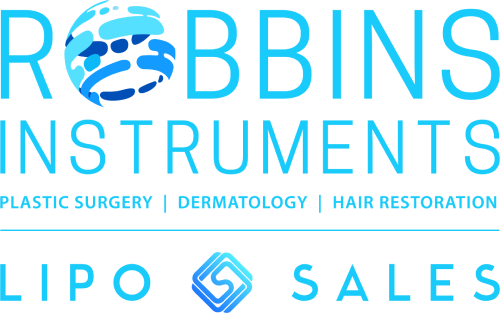
Skin Instruments Demystified: Everything You Need to Know
Introduction
In the world of dermatology, cosmetology, and surgical practices, skin instruments play a pivotal role in ensuring precision, hygiene, and efficacy. Whether you’re a medical professional, an esthetician, or someone simply curious about skincare tools, understanding these instruments is crucial. This article, brought to you by Robbins Instruments—a trusted name in surgical tools—dives deep into the fascinating world of skin instruments, covering their types, uses, and how to choose the best ones for your needs.
Why Skin Instruments Are Essential
The skin, being the body’s largest organ, requires specialized care, particularly in medical and cosmetic settings. From diagnosing skin conditions to performing intricate surgeries, skin instruments are indispensable. Their precise design and functionality help professionals achieve optimal results while ensuring patient safety and comfort.
Types of Skin Instruments and Their Applications
- Dermatology Instruments
Dermatology tools are specifically designed for diagnosing and treating skin conditions. Common examples include:
- Dermatoscopes: Used for magnifying and analyzing skin lesions and moles, aiding in early detection of skin cancer.
- Curettes: Handy for scraping off superficial skin lesions or warts.
- Skin Biopsy Punches: Essential for collecting tissue samples for pathological examination.
- Surgical Skin Instruments
In surgical settings, precision and sterility are paramount. Popular surgical instruments include:
- Scalpels: Used for making precise incisions.
- Forceps: Useful for holding and manipulating tissue.
- Scissors: Designed for cutting tissues with minimal damage.
- Skin Hooks: Aid in holding and retracting skin during procedures.
- Cosmetic and Aesthetic Instruments
For professionals in cosmetology, skin instruments enhance treatments for improving skin appearance. Examples are:
- Microneedling Pens and Rollers: Promote collagen production and skin rejuvenation.
- Comedone Extractors: Remove blackheads and whiteheads efficiently.
- Dermaplaning Tools: Exfoliate the skin and remove fine facial hair for a smoother appearance.
- Laser and Energy-Based Devices
Though not traditional instruments, these tools are vital in modern dermatology and aesthetics. Examples include:
- Laser Devices: Used for hair removal, scar reduction, and skin tightening.
- Radiofrequency Tools: Stimulate collagen production and enhance skin elasticity.
How to Choose High-Quality Skin Instruments
When selecting skin instruments, several factors should guide your decision:
- Material Quality: Opt for instruments made of high-grade stainless steel for durability and ease of sterilization.
- Ergonomic Design: Tools should offer a comfortable grip and precision control to reduce hand fatigue during extended use.
- Sterilization Compatibility: Ensure the instruments can withstand autoclaving or other sterilization methods.
- Manufacturer Reputation: Choose products from trusted brands like Robbins Instruments, known for their commitment to quality and innovation.
Maintenance Tips for Longevity
Proper care extends the lifespan of your skin instruments. Follow these tips:
- Regular Cleaning: Use appropriate cleaning agents to remove debris and biological material.
- Proper Storage: Store instruments in a dry, sterilized environment to prevent corrosion.
- Routine Inspections: Check for signs of wear or damage, replacing instruments as needed.
- Timely Sharpening: Keep blades and edges sharp for consistent performance.
The Robbins Instruments Difference
Robbins Instruments has been a leader in the manufacturing and distribution of premium surgical tools for decades. Their skin instruments are trusted by professionals worldwide for their precision, reliability, and affordability. Whether you’re performing a complex surgery or a simple cosmetic procedure, Robbins Instruments has the perfect tool to meet your needs.
Conclusion
Skin instruments are more than just tools; they’re an extension of a professional’s expertise and care. By choosing high-quality instruments from reliable manufacturers like Robbins Instruments, you’re investing in better outcomes and patient satisfaction. Whether you’re in the medical or cosmetic field, the right tools make all the difference.
We hope this guide has provided valuable insights into the world of skin instruments. If you found this article helpful, share it with your colleagues or leave a comment below with your thoughts and questions. Let’s keep the conversation going!
Contact Robbins Instruments Today
Are you a skincare professional seeking to enhance your precision and efficiency in your practice? Skin instruments from Robbins Instruments can be the perfect solution. By providing superior functionality and ergonomic design, these innovative tools allow you to perform treatments with greater accuracy, reduce fatigue, and improve patient outcomes. Contact Robbins Instruments today to learn more about our range of high-quality skin instruments and discover how they can transform your practice.




